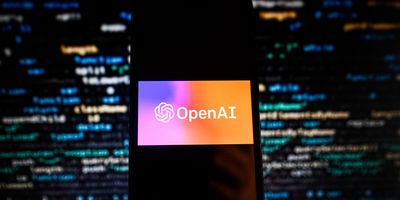October 31, 2023
OpenAI, the much-hyped startup behind the chatbot ChatGPT and the image generator DALL-E, announced the formation of an internal preparedness team this week, designed to curb the “catastrophic risks” posed by AI. So, what exactly are they worried about? Just “chemical, biological, radiological, and nuclear” threats. That’s it? Well, there’s also “autonomous replication and adaptation” by which models could become disarmingly powerful by gathering resources and making copies of themselves.
OpenAI CEO Sam Altman has simultaneously embarked on a global tour calling for AI regulation and lobbying for AI rules that align with his vision.
OpenAI should be applauded for trying to prevent its own products from becoming a nuclear threat — something most companies don’t need to worry about. But what’s also happening here is that one of the world’s highest-profile AI firms is signaling to global regulators that it’s both a responsible actor and that it’s already regulating itself.
While Eurasia Group senior analyst Nick Reiners believes Altman is serious with his commitment to averting disaster, he doesn’t see self-regulating efforts by companies deterring governments from adopting their own AI regulations. The Biden administration, for one, “started with getting companies like OpenAI to sign up to a series of voluntary commitments in July, so if [they] believed in a purely voluntary approach, then they would have left it at that,” Reiners said. “Instead they are turning these commitments into legal obligations, and they are doing so at an impressive speed by government standards.”
More For You
Walmart is investing $350 billion in US manufacturing. Over two-thirds of the products Walmart buys are made, grown, or assembled in America, like healthy dried fruit from The Ugly Co. The sustainable fruit is sourced directly from fourth-generation farmers in Farmersville, California, and delivered to your neighborhood Walmart shelves. Discover how Walmart's investment is supporting communities and fueling jobs across the nation.
Most Popular
- YouTube
President Trump’s second term has rapidly reshaped global politics, with the US wielding power more aggressively, targeting weaker countries and even allies, Stephen Walt explains on GZERO World.
- YouTube
Ian Bremmer breaks down a sudden and serious transatlantic crisis: President Trump’s insistence that the United States must have sovereignty over Greenland.
- YouTube
It’s been a year since President Trump returned to office. How has the world changed? Stephen Walt joins Ian Bremmer on GZERO World.
© 2025 GZERO Media. All Rights Reserved | A Eurasia Group media company.
